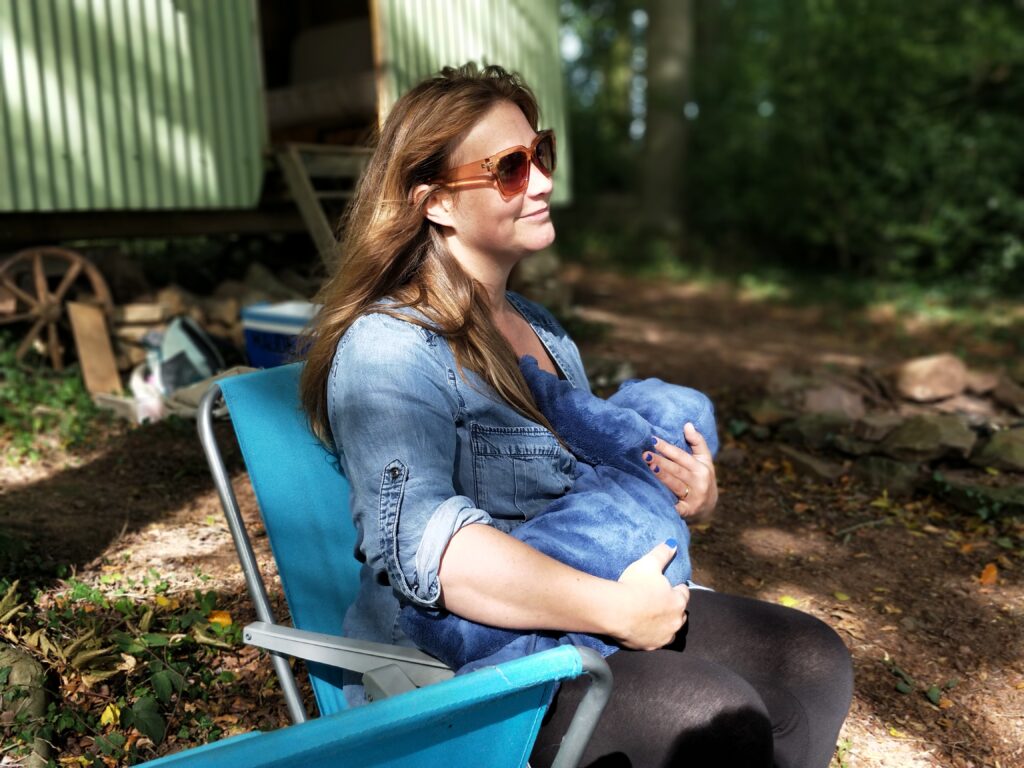Breastfeeding is a natural and beautiful experience for mothers and their babies. It provides numerous benefits to both the mother and the child. From providing the perfect nutrition to creating a strong bond, breastfeeding is an important aspect of parenting.

It is certainly a unique and intimate experience that only you and your baby can share. Holding your baby close, feeling their little body cuddle into yours, and watching them contentedly nurse is a moment that you’ll never forget.
This time spent together helps to create a strong connection between you and your baby, building trust and providing comfort in those early days and beyond.
While it is a wonderful experience, it can also be challenging and overwhelming for some. Therefore, it becomes important to be informed at every step.
So, let’s delve into the details and find out everything you need about Breastfeeding.
How Breastfeeding helps Mothers and Babies
It is recommended to start breastfeeding within the first hour of birth. This helps to initiate the bonding process and establishes a good milk supply. However, apart from breastfeeding being a bonding experience, it’s also beneficial for both you and your baby.

For mothers, breastfeeding releases hormones that promote relaxation and help to reduce stress. It can also help you lose weight after pregnancy, and may lower the risk of certain health issues, such as breast and ovarian cancer.
Secondly, for the baby, breast milk is the ultimate source of nourishment. It contains all of the essential vitamins, minerals, and nutrients that your baby needs to grow and thrive. Additionally, breast milk is constantly changing to meet your baby’s evolving needs, making it the perfect food for your growing little one.
What Experts Say
Right support and advice are crucial for mothers to be able to breastfeed successfully. Here are some things to remember as suggested by experts:
- Nurse frequently: Newborns should be nursed 8 to 12 times daily, or whenever they show signs of hunger. These signs can include rooting, sucking on their hands, or fussy behaviour. This will ensure a steady milk supply and ensure that your baby is getting enough to eat.
- Breastmilk can change in taste and colour depending on what you eat. So, if your baby is a picky eater, try adjusting your diet to see if it makes a difference.
- Allow your baby to nurse on demand: Babies know when they need to eat and for how long. Allowing your baby to nurse as needed will help establish a good milk supply and keep your baby well-fed.
- Switch sides frequently: Breastfeeding on one side for too long can result in over-empty breasts. It can affect milk production and cause discomfort for the mother. To prevent this, switch sides every few feedings.
- Avoid Pacifiers and Bottles in the early weeks: Pacifiers and bottles can interfere with breastfeeding and affect milk supply. It is recommended to wait at least 4-6 weeks before introducing them.
Breastfeeding: Mini Parenting Master Class

For a mess-free feeding time Check Out Jollee’s Handpicked Collection of Spill Proof Feeding Bottles
What you should DO
- Stay hydrated: Drinking plenty of water and other fluids is important to maintain a good milk supply and keep yourself healthy.
- Eat a well-balanced diet: A healthy diet is essential for the mother’s health and milk production. Eat a variety of foods to ensure that you are getting all the nutrients you need.
- Don’t be afraid to ask for help: If you need help or have questions, don’t hesitate to reach out to a lactation consultant, your healthcare provider, or a breastfeeding support group.
Both WHO and UNICEF have recommended Exclusive Breastfeeding for the first six months of life without any other food. Evidently, it is shown to promote sensory and cognitive development and protects against infectious and chronic diseases.
After the period of 6 months, breastfeeding should continue up to 2 years of age along with appropriate complementary foods.
UNICEF: Breastfeeding From The First Hour
What No One Told You About Breastfeeding
- Milk composition changes throughout the day and during a feeding: The composition of breast milk changes depending on the time of day and how long it has been since the last feeding. This allows the baby to receive the nutrients they need as they grow.

- Breast milk contains stem cells: Breast milk contains stem cells that can potentially help to repair damaged tissue and improve the health of the baby.
- Breastfeeding can lower the risk of certain cancers: Studies have shown that breastfeeding can lower a mother’s risk of developing certain types of cancer, such as breast and ovarian cancer.
- Breast milk is a natural pain reliever: The hormone oxytocin, which is released during breastfeeding, can help to soothe both the baby and the mother, reducing pain and stress.
- Mothers can breastfeed multiple children: It is possible for a mother to breastfeed multiple children, including adopted children without any problems. Reduce Bottle Rejection with First Feed Silicone Bottle
- Some medications can affect breast milk: Some medications can pass into breast milk and potentially harm the baby. Therefore, it is important for mothers to speak with their doctor about any medications they are taking while breastfeeding.
Mothers can also be conscious about how their body has changed after giving birth with the appearance of stretch marks. So, before using any lotions or oils to reduce the appearance of stretch marks, it is recommended that you consult a professional first because some of the ingredients can be harmful to the baby to ingest.

Things To Remember
Breastfeeding is not just about feeding your baby, it’s about creating a unique bond and providing both mother and baby with essential health benefits. Whether you’re a new mom or an experienced breastfeeding mother, remember that every journey is unique and beautiful in its own way.
So, embrace the experience and cherish the memories you’re making with your little one.
For more Tips, Check Out: Jollee’s Blog
For Handpicked Childcare Essentials: Visit Jollee






